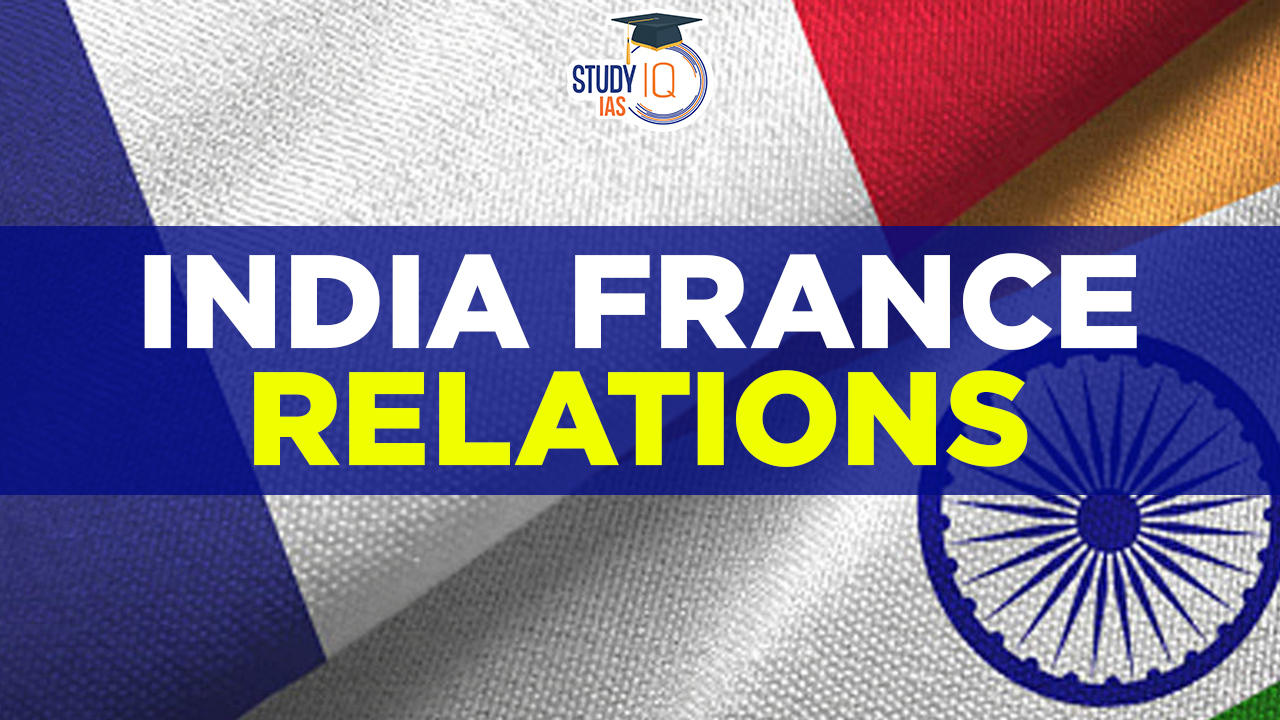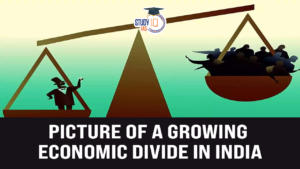Table of Contents
Context: The Prime Minister attended the France’s Bastille Day parade in Paris, indicating the significance of the bilateral relationship between India and France.
More on the News
Major Highlights of the visit:
Pillar 1: Partnership for Security and Sovereignty
- Defence: Continuation of cooperation on fighter jets and submarines, with the successful delivery of 36 Rafale jets to the Indian Air Force and the P75 program for six Scorpene submarines.
- Space: Enhancement of scientific and commercial partnership between France’s CNES and India’s ISRO, including joint projects such as the Earth observation satellite TRISHNA and maritime surveillance satellites in the Indian Ocean.
- Civil Nuclear Energy: Progress on the 6-European Pressurized Reactors power plant project in Jaitapur, Maharashtra, and cooperation on small modular reactors and advanced modular reactors.
- Indo-Pacific: Adoption of a roadmap for joint actions in the Indo-Pacific region, covering comprehensive strategies and discussions on an Indo-French development fund for third countries in the region.
- Counter-Terrorism: Strengthening cooperation between France’s GIGN and India’s National Security Guard.
- Critical Technology: Strengthening cooperation on cutting-edge digital technology, including supercomputing, cloud computing, artificial intelligence, and quantum computing, with the announcement of an agreement between Atos and the Ministry of Earth Sciences of India for the supply of supercomputers.
- Civil Aviation: Signing of technical and safety agreements to support the expansion of routes between France and India and the growth of the Indian civil aviation market.
Pillar 2: Partnership for the Planet and Global Issues
- Plastic Pollution: Commitment by France and India to adopt an international treaty to end plastic pollution throughout the entire life cycle of plastic products.
- Health: Signing of a Letter of Intent on health and medicine to structure cooperation in hospitals, medical research, digital technology, biotechnology, public health, and combating micro-bacterial resistance.
- Blue Economy: Launch of a partnership between France’s IFREMER and India’s National Institute of Ocean Technology (NIOT) on ocean research under the Blue Economy and Ocean Governance roadmap.
- Financing the Energy Transition: Announcement of financing from the French Development Agency for India’s sustainable cities program “CITIIS 2.0” and financing from Proparco for the South Asia Growth Fund (SAGF III).
- Decarbonized Hydrogen: Manufacturing electrolyzers in India, following the Indo-French roadmap for decarbonized hydrogen.
Pillar 3: Partnership for People
- Student Mobility: Target of welcoming 30,000 Indian students in France by 2030 and the issuance of 5-year short-stay Schengen visas for Indian students with a Master’s degree from a French university.
- Diplomatic and Consular Network: Opening of a Consulate General of India in Marseille, France, and a Bureau de France in Hyderabad, India.
- Culture: France’s selection as India’s partner for establishing a major new National Museum in New Delhi, and the agreement between France Médias Monde and Prasar Bharati for the exchange of audio-visual content and co-production of programs.
- Research: Increase in funding for the Indo-French Centre for the Promotion of Advanced Research to support new projects.
India-France Ties
Evolution:
- India and France have enjoyed a long-standing and amicable relationship, formalized as a “strategic partnership” in 1998.
- Since then, the two nations have engaged in extensive collaboration across various sectors, including defence, counterterrorism, nuclear energy, and space.
- A notable milestone in their cooperation was France becoming the first country to enter into a civil nuclear cooperation agreement with India following the Nuclear Suppliers’ Group (NSG) waiver. This enabled India to resume civil nuclear cooperation with the global community.
- India and France have also expanded their cooperation in other areas such as trade, investment, culture, science, technology, and education.
- France has been a consistent supporter of India’s growing role on the global stage, backing its aspirations for permanent membership in the United Nations Security Council (UNSC) and the Nuclear Suppliers Group (NSG).
- During periods of regional conflicts, France has demonstrated solidarity with India. Notably, it lifted the arms embargo that affected India and Pakistan during the 1965 conflict, and during the 1971 war and the refugee crisis on India’s border with Bangladesh, France stood by India’s legitimate concerns.
- An essential aspect of their relationship was France’s refusal to impose sanctions on India after the 1998 nuclear tests, and it publicly opposed U.S. sanctions during that time.
Areas of Cooperation:
Defence:
- France has emerged as a key defence partner for India, becoming the second largest defence supplier in 2017- 2021.
- France has emerged as a major strategic partner for India with crucial defence deals and increased military to military engagement.
- Example: Induction of the French Scorpene conventional submarines, being built in India under technology transfer agreement of 2005, and the Indian Air Force having received 36 Rafale fighter jets.
- The Tata group has also tied up with Airbus to manufacture C-295 tactical transport aircraft in Vadodara, Gujarat.
- Military Dialogues and Regularly held Joint Exercises: Varuna (navy), Garuda (air force), and Shakti (army)
Economic Cooperation:
- France has emerged as a key trading partner of India with annual trade of USD 12.42 billion in 2021-22.
- It is the 11th largest foreign investor in India with a cumulative investment of USD 10.31 billion from April 2000 to June 2022, which represents 1.70% of the total foreign direct investment inflows into India.
Civil Nuclear Cooperation:
- France was among the first countries with which India signed a civil nuclear deal.
- Paris also played a critical role in limiting India’s isolation in the non-proliferation order after the 1998 nuclear tests.
Cooperation at International Forum:
- France supports India’s bid for permanent membership of the United Nations Security Council as well as its entry into the Nuclear Suppliers Group.
Climate Cooperation:
- Both countries are concerned about climate change, where India has supported France in the Paris Agreement expressing its strong commitment to mitigating the effects of climate change.
- Both countries, as part of their joint efforts on climate change, launched the International Solar Alliance in 2015.
Maritime Ties:
- Joint Strategic Vision of India-France Cooperation in the Indian Ocean Region presents a blueprint for a strengthening of ties.
- French – Indian joint patrolling in the Indian Ocean signals India’s intent to expand its footprint in the Indian Ocean by engaging with like-minded partners.
- Maritime security has further gained momentum as both countries have articulated their common vision for a free, fair and open Indo-Pacific.
- India and France in September 2022 agreed to set up an Indo-Pacific Trilateral Development Cooperation Fund that will support sustainable innovative solutions for countries in the Indo-pacific region.
- India, France, UAE Trilateral Initiative is aimed at ensuring maritime domain awareness and security from the east coast of Africa to the far Pacific.
Space Cooperation:
- India and France have continued to strengthen their cooperation in the field of space in recent years.
- Some of the recent developments in their space collaboration include:
- ISRO-CNES Joint Working Group: In 2020, the Indian Space Research Organization (ISRO) and the French National Centre for Space Studies (CNES) established a Joint Working Group to further enhance their cooperation in the field of space.
- Joint Mars Mission: In 2020, ISRO and CNES announced plans to collaborate on a joint Mars mission in the near future.
- Collaboration on Space Debris: India and France have also been working together on addressing the issue of space debris.
- Joint Earth Observation Mission: In 2021, ISRO and CNES announced plans to collaborate on a joint Earth observation mission, which will involve the development of a satellite to study the Earth’s atmosphere and climate.
Challenges in India-France Relations
- Absence of Free Trade Agreement (FTA): Despite having good relations, France and India don’t have a Free Trade Agreement (FTA) between them. Further, no progress is being made on the India-EU Broad based Trade and Investment agreement (BTIA) as well.
- Defence and Security Cooperation: Despite a strong defence partnership, the two countries have different priorities and approaches towards defence and security cooperation. India’s focus on its neighbourhood and its “non-aligned” policy can sometimes clash with France’s global interests.
- Trade Imbalances: Despite being significant trade partners, there is a trade imbalance between India and France, with France exporting more to India than the other way around. This imbalance has been a source of concern for India, and both countries are looking for ways to address it.
- Intellectual Property Rights: India has been criticised by France for not adequately protecting intellectual property rights, which has affected French businesses operating in India.
- China’s Factor: China’s increasing dominance in the Indian Ocean region has become a source of concern for both India and France, as it has the potential to disrupt the regional balance of power and undermine regional stability and security.


 Delimitation, Women's Quota
Delimitation, Women's Quota
 A collective effort towards peace in Mya...
A collective effort towards peace in Mya...
 A Picture Of A Growing Economic Divide I...
A Picture Of A Growing Economic Divide I...



















